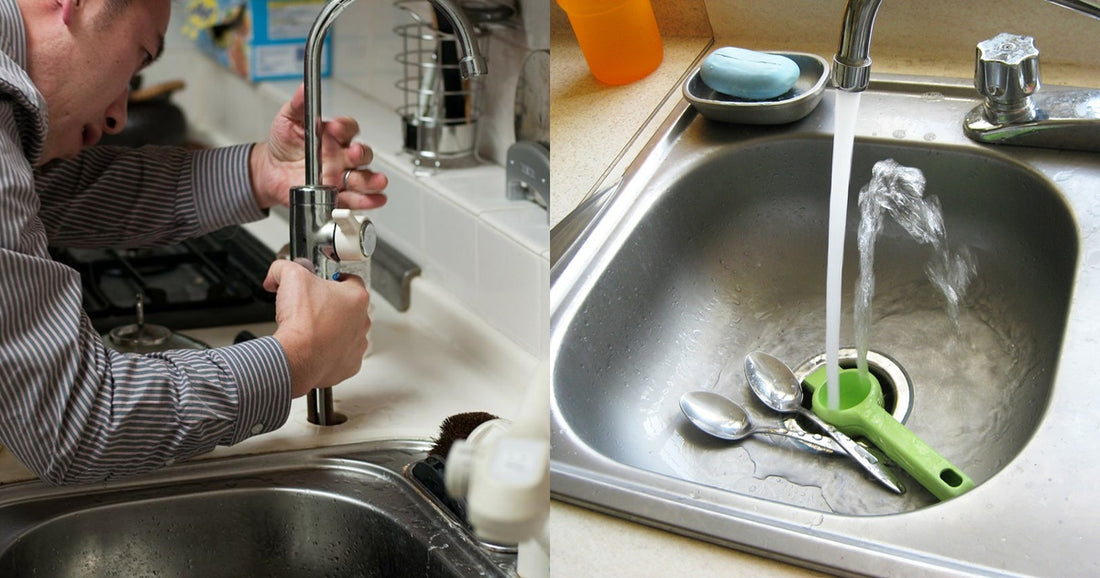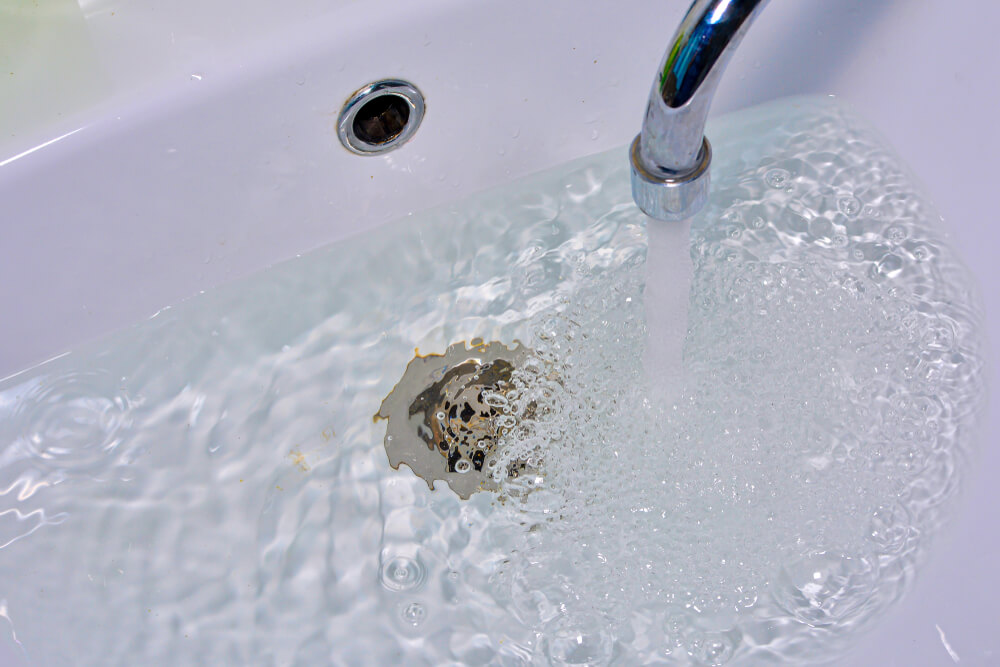Practical Ways To Resolve Slow-Draining Sink Problems
Practical Ways To Resolve Slow-Draining Sink Problems
Blog Article
Just how do you really feel in regards to How to Fix a Slow Draining Sink?

Introduction
We have actually all been there: You're cleaning your teeth or washing your hands, and you observe the water pooling in the sink. Rather than quickly swirling down the drain, it sticks around, turning your once-refreshing morning regimen into a miniature swamp scene. A slow-draining sink isn't simply irritating; it's often an indication of larger plumbing concerns lurking underneath the surface area. The good news is that a lot of slow-draining sinks can be taken care of with a little expertise, a few basic tools, and some patience. Ready to tackle this project head-on? Let's roll up our sleeves and dive right in.
Understanding the Reasons For a Slow-Draining Sink
Before you start poking around in your pipes, it assists to know what might be creating the stagnation. Understanding the root cause makes it less complicated to pick the right fix.
Tools and Materials You'll Require
The right tools make all the distinction. Fortunately, you will not require a completely equipped plumber's van to do the job.
Step-by-Step Overview to Taking Care Of a Slow-Draining Sink
Currently, let's get involved in the nitty-gritty. This detailed process will certainly guide you through basic methods to recover your sink's water drainage.
Step 1: Get Rid Of and Clean the Stopper
Commonly, the stopper (that little plug you lower to block water) is the very first offender. Remove it very carefully and wipe any type of hair or gunk entraped around its base. Wash it completely prior to putting it back in position.
Action 2: Use a Bettor to Displace Debris
Got that bettor all set? Setting it over the drainpipe and provide it a couple of company pumps. The idea is to produce suction that can loosen up any kind of blockage. If you see littles particles drifting up, you get on the right track.
Action 3: Attempt a Drainpipe Serpent or Cord Hanger
If the plunger does not do the trick, it's time to highlight the drain serpent. Gently feed it into the drain and spin as you go. You could feel some resistance-- that's likely the blockage. Maintain twisting and drawing till you remove the obstruction. If you don't have a drainpipe snake, a corrected cord wall mount can operate in a pinch.
Step 4: Use a Do It Yourself Drainpipe Cleaner
A natural cleaner made from cooking soda and vinegar can break down residual crud. Put half a cup of cooking soft drink into the drain, adhered to by half a cup of vinegar. Let it fizz for around 15 mins, after that flush with hot water. This chemical reaction usually does wonders for small clogs.
Tip 5: Rebuild and Evaluate the Sink
Put whatever back together and run the faucet. Does the water currently swirl down the tubes at a decent speed? If yes, offer yourself a pat on the back. If not, don't despair-- there are still a couple of even more tricks up your sleeve.
Necessary Tools for Do It Yourself Services
A plunger is your go-to beginning point. A tiny, sink-sized bettor develops suction that can dislodge small blockages. For even more consistent clogs, a drain snake (in some cases called a plumbing technician's auger) functions marvels. A set of handwear covers, a flashlight, and perhaps a pair of safety goggles are additionally helpful.
Recommended Cleaning Solutions
Light dish soap and warm water can aid break down greasy build-up. A combination of cooking soda and vinegar is a tried and true home remedy, and enzymatic cleaners use an even more environmentally friendly technique. Maintain chemical drainpipe cleansers as a last option, as they can be harsh on your pipes.
Common Offenders Behind Slow Drain
So, what's blocking things up? Generally, it's a mix of daily debris-- assume hair, soap scum, toothpaste deposit, and remaining food particles. With time, these little bits gather and cling to the pipe wall surfaces, slowly tightening the flow and making it harder for water to pass through. In some cases, mineral deposits from hard water can also include in the substance, creating the excellent storm for persistent blockages.
When is it Time to Do Something About It?
If you discover the water draining pipes slower than typical, it's an excellent concept to step in earlier rather than later on. Waiting also long can result in finish clogs, unpleasant odors, and even pipeline damage. If the water takes greater than a couple of secs to clear out after shutting off the tap, consider it a warning and prepare to place on your do it yourself hat.
Safety And Security First: Precautions and Prep work
Before you launch into unclogging mode, think of safety. You're dealing with possibly unclean water and debris, so slip on a set of gloves. If you're making use of chemical cleansers, make certain the space is well-ventilated and follow the instructions on the label.
Safety Equipment and Work Space Arrangement
Put down some old towels or dustcloths around the sink area to catch dashes. Remove any things that may enter your way, like soap dispensers or tooth brush holders. Make sure you have great lighting-- get hold of a flashlight if required.
Alternate Approaches for Stubborn Clogs
Not all clogs are developed equal. If your sink still rejects to comply, consider these alternate remedies.
Baking Soda and Vinegar Approach
We currently touched on this, yet it's worth keeping in mind again. This mild, environment-friendly method is safer than chemical cleaners and often quite efficient.
Enzymatic Drainpipe Cleaners
Enzyme-based cleaners utilize natural germs to digest raw material. They're an exceptional choice if you're wanting to prevent extreme chemicals. Just keep in mind, they may take a bit longer to work their magic.
Chemical Drainpipe Cleaning Company: Benefits And Drawbacks
Chemical cleansers can blast via hard clogs quickly, however they're not without drawbacks. They can create warm and fumes, damages pipelines if used exceedingly, and pose ecological risks. Utilize them moderately, and always adhere to the directions meticulously.
Preventive Measures to Keep Your Sink Flowing
Avoidance is the very best cure. By taking on a few easy habits, you can maintain your sink from decreasing to begin with.
Normal Cleaning Habits
Wipe down the sink basin and fixture location regularly. Remove hair or food fragments before they have a chance to wash down the drain.
Avoiding Harmful Compounds Away
Think twice prior to discarding coffee premises, oil, or coarse vegetable scraps down the sink. These wrongdoers hold on to pipe walls, creating blockages over time.
Routine Maintenance Checks
Schedule a quick monthly evaluation. Run hot water with the sink for a couple of mins, taking notice of the flow. If it seems sluggish, act quick before it ends up being a full-blown clog.
When to Call a Specialist Plumber
Occasionally, no matter just how difficult you attempt, that obstruct simply won't budge. That's when it's time to bring in the pros.
Indicators That Suggest an Extra Major Problem
If your sink drains pipes gradually regardless of several efforts, or if you see water backing up in various other components (like your shower or bathroom), you might have a more severe pipes problem hiding much deeper in the system.
Balancing Do It Yourself Efforts with Professional Help
While do it yourself can conserve you money and offer a feeling of success, there's no pity in calling a specialist. A professional plumbing professional can evaluate your entire plumbing arrangement, guaranteeing there's no underlying damage or lasting problem that can cost you extra later on.
Comparing Costs and Long-Term Solutions
Prior to making a decision, consider the big picture. A cheap, quick fix may resolve the trouble temporarily, yet purchasing a much more long-term solution could save you cash and tension in the future.
Evaluating the Expenditures of DIY vs. Specialist Solutions
Do it yourself solutions often set you back little more than the cost of a bettor or a container of cooking soda. Expert solutions, on the other hand, featured a cost yet might protect against repetitive concerns and pricey fixings later on.
Buying High Quality Fixtures and Upgrades
If your sink's style contributes to regular blockages, it may be worth upgrading to higher-quality components or modifying the plumbing layout. Consider this an investment in your home's functionality and convenience.
Final thought
A slow-draining sink can feel like a minor irritability, yet it's commonly an indicator that your pipes requires a little tender loving care. By comprehending the root causes, using the right devices and methods, and committing to straightforward preventive measures, you can maintain your sink streaming openly. And when all else fails, never ever hesitate to call an expert-- your home's pipes is worth the investment in care and upkeep.
Three Common Ways to Fix a Slow Drain
Baking Soda Method
Boil a full pot of water. Measure out cup of baking soda and pour it down the drain. Then take cup of the magical cleansing substance known as white vinegar and drop that down there too. Allow the mixture to fizz in the drain for five minutes as the vinegar and baking soda combine. Now dump in that whole pot of boiling water. This combination of cleaning substances should clear out anything that is causing your sink to drain slowly. If it doesn t...
Zip-It
If the baking soda method doesn t clear out your drain, it may be because a significant amount of hair and/or other debris has collected there and you need to remove it. Purchase a Zip-It tool at any home improvement or hardware store and insert it into your drain. It will catch any collected hair or debris that s blocking the flow of water. Pull it out. If it s got a big clump of hair, etc. on the end, you ve probably got your culprit.
Drain Cleaner
If these methods don t work, there is the standard drain cleaner that you can also buy in a hardware store or even your local grocery store. It s better if you can use a household solution, but these drain cleaners often work in a pinch. They re very simple to use. You generally just dump them in your drain and wait. If even this method is not effective, it may be time to call the plumber.
https://www.mrrooter.com/oneida/about-us/blog/2017/july/three-common-ways-to-fix-a-slow-drain/

As a keen person who reads about 4 Tips to Fix a Slow Draining Sink, I imagined sharing that piece of content was a good thing. Appreciated our write up? Please share it. Help others discover it. Thanks so much for your time invested reading it.
Call Today Report this page